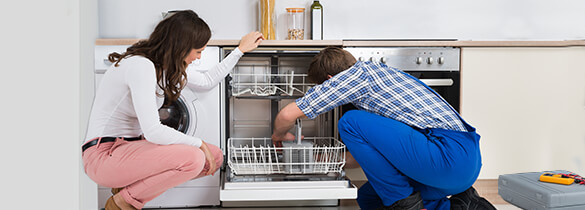Summer is officially over, and while metro Atlanta isn’t feeling much relief from high temperatures just yet, cooler fall weather is definitely on the way – making this the ideal time to prepare homes for wet, winter weather. Delta Community has recommendations for homeowners whose only question is: where to begin?
Start at the top. Check the insulation level in unfinished attics. If the insulation is below (or just level with) ceiling joists, beef it up by adding loose fiberglass or cellulose until the insulation is 10-14 inches deep. New insulation may be added on top of old, and it isn’t necessary to use the same type.
Mind the gap. While you’re up there, go ahead and seal any gaps in the attic floor and framing. Air leaks are among the biggest energy wasters, so inspect caulking and seals around windows and add or replace the weather stripping around your exterior doors. Check for leaks around electrical outlets and light switches, and add easy-to-install gaskets as needed. Even floor registers can leak air from a cold crawlspace or basement, but insulation kits sold at home centers are an easy fix.
Weather-strip interior doors. That’s right - the ones on the inside. Cold air can enter a house through gaps around interior doors that lead to any uninsulated space, such as a garage, basement or laundry room. Weather-stripping the top and sides, and adding an inexpensive door sweep to the bottom, can reduce air leaks by as much as 11 percent.
Flush the water heater. Sediment build-up displaces water and prevents water heaters from operating at full capacity. Save the cost of heating up gunky sediment by flushing it out once a year. Confident Do-It-Yourselfers can just turn off the heater, let the tank cool, shut off the water supply, connect a hose to the drain cock and run it to a floor drain. If you don't have a floor drain (or DIY confidence), call a professional.
Tune up furnaces and fireplaces. A well-maintained furnace works efficiently, keeping families warm and cozy while getting the most bang from each buck spent on heating. The same is true for fireplaces. Proper inspection of a fireplace is vital to ensuring its safe operation - even if it is rarely used. For both appliances, hire a professional.
Change your habits. It’s always smart to set, and then forget, a home’s thermostat. Human nature sometimes drives homeowners to fiddle with the temperature on unusually hot or cold days. Unfortunately, overriding pre-set temperatures on programmable thermostats wastes energy. Get the best performance, and save up to $180 a year in heating and cooling costs, by keeping the temperature constant for at least eight hours at a time.
Preparing for winter weather doesn’t have to be painful. If projects take on a life of their own, or become bigger financial commitments than expected, consider a Home Equity Line of Credit (HELOC), or a Home Equity Loan. Both options give you the latitude to pay later, for important fall home fix-ups that are needed right now.



